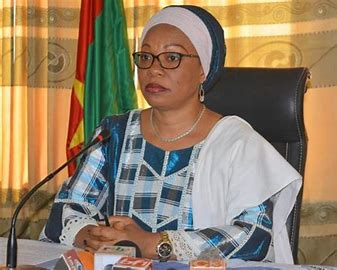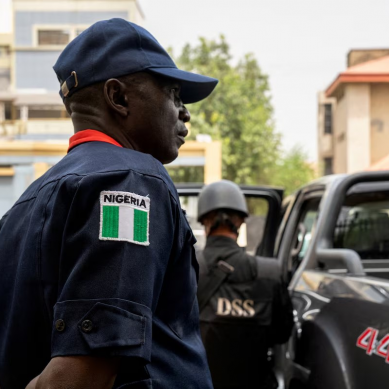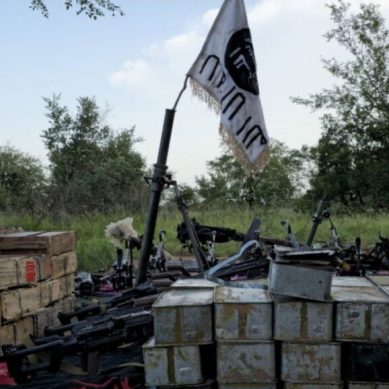
Some displaced people in Burkina Faso have expressed fear of sexual abuse and exploitation will be further ignored and marginalised after the national government banned journalists from visiting and reporting on situation in displacement camps.
Aid workers say the ban, effective from around last October, was stems from reports in local media and by aid groups about rape and survival sex in the camps, which officials believed reflected poorly on the country.
Hélène Marie Laurence Ilboudo Marchal, the minister of humanitarian action in Burkina Faso, defended the decision by her government, claiming it was done to protect the dignity of displaced people.
“We don’t need the media to come and film all of this, as if it were a zoo,” she said. The New Humanitarian was able to speak to women outside of the camps, in Kaya town.
Several local officials in Kaya – none of whom was willing to be named – blamed sexual abuse and exploitation issues on the women themselves. One said women were requesting sex because their husbands had been killed in the conflict, or because they live alone in Kaya while their partners work in mining sites outside of town.
“If women are [alone] during one month or six months or one year… they will want this sexual pleasure and sometimes they are the ones that provoke,” said the official, whose comments were similar to those made by two others in the local government.
Asked about its responsibility to respond to the abuse claims or to try to prevent similar situations, Antoine Renard, WFP’s country director in Burkina Faso, said the organisation wasn’t responsible for the registration process and was “not a protection agency” – one that deals with rights-related issues.
But Nidhi Kapur, an independent gender specialist who works on preventing sexual exploitation and abuse in emergency contexts, said the UN should be responsible for the “full value chain” of food distributions, regardless of whether it is directly involved in each stage.
“They have a responsibility to be aware of the environment they are going into and adequately address the potential risks and harms associated with their proposed intervention,” Kapur said. “Whenever there is a large humanitarian response and you inject huge amounts of resources into a resource-poor environment, it is going to create conditions in which sexual exploitation and abuse are rife.”
WFP’s publicly available policy on sexual abuse and exploitation states that claims of abuse by partner organisations – which experts on the issue said should include the government managing the lists – must be reported through internal ethics and compliance systems.
The organisation also has a protection policy that describes its responsibility “to do all it can to support the protection of people in humanitarian emergencies, especially – but not only – women, children and marginalised and disenfranchised groups”.
While reports of sexual abuse by local officials and community leaders may not be the legal responsibility of a foreign aid agency, new guidelines from USAID – the largest donor to WFP – insist that it be informed of any suspected cases of sexual exploitation and abuse involving its resources. WFP didn’t respond when asked if it had informed its donors. USAID didn’t confirm if it had been made aware of the specific allegations.
Renard said WFP has repeatedly conveyed messages to its various partners – including the government – that it has a zero-tolerance policy for sexual abuse and exploitation.
The agency and several other aid groups said they had also increased measures to counter sexual abuse and exploitation in recent months – from arranging training sessions for aid workers on what constitutes sexual misconduct, to installing feedback boxes in displacement camps in Kaya and beyond.
But agencies have been slow to set up other systems. While large humanitarian missions often have inter-agency networks aimed at preventing sexual abuse and exploitation, such a system is not fully operational in Burkina Faso, said Makhetha, the top UN official. She said a network would be implemented by September – five years after the crisis began, and three years after it started escalating rapidly.
Asmita Naik, an international human rights consultant and co-author of a 2002 landmark report on sexual exploitation by aid workers in West Africa, described the time taken to set up the network as “incredibly slow”.
“The UN has been writing about the value of inter-agency complaints mechanisms and networks for over a decade,” she said. “The only way we’ll see progress is if donors make cooperation with joint mechanisms a condition of funding.”
Marchal said the government, meanwhile, has set up a national hotline – with support from UN agencies – that enables women to report different types of sexual and gender-based violence, not necessarily related to the distribution of aid.
Some of the women who spoke to The New Humanitarian were aware of the hotline number and said individuals – whose identity they were unsure of – had approached them in camps with information on how to use it. Others did not know the number.
Experts on addressing sexual exploitation in humanitarian operations say aid groups need to rethink their approach to reporting mechanisms, which are rarely used by complainants.
“Humanitarian groups should work with local communities to create awareness about sexual exploitation and abuse, [and] work with them to create complaint mechanisms that fit their local contexts,” said Agnes Odhiambo, a women’s rights researcher at Human Rights Watch.
Even with better systems in place, Burkinabé women said they fear abuse and exploitation will continue so long as the wider conflict does.
“We hope this crisis will end so that we can return to our homes,” said a woman in Kaya who gave only her first name, Maiga. “We think people are taking advantage of us because of our situation.”
- The New Humanitarian








